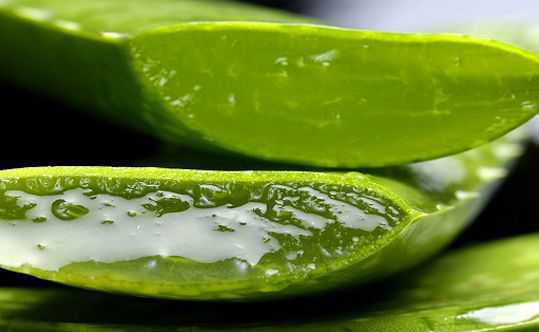How many times have we heard people advising us to use Aloe Vera to nourish our skin? How many of us have tried gels and creams with Aloe Vera to soothe our skin? Though most people know about this plant and are quick to advise someone to use it, do we really understand the health benefits of Aloe Vera?
Aloe Vera or Ghritkumari is a plant species commonly grown in tropical climates having ornamental and medicinal uses. The origin of the plant is uncertain but is extensively cultivated by modern day farmers throughout the world due to its demand. In India, it is widely cultivated in Rajasthan since the land is suitable there. This plant is known to have immense health benefits and they are being widely recognized now. The most commonly known benefit of Aloe Vera is that it nourishes dry skin and soothes bumps and rashes. But its benefits go beyond just that. Let us look at all of these:
1. Management of Cholesterol:
Aloe Vera helps in lowering cholesterol as it decreases the level of low-density lipoproteins (LDL) in the blood which is regarded as bad cholesterol and increases the high-density lipoproteins (HDL) levels known as good cholesterol. This thereby reduces the chances of strokes and heart attacks.
2. Aids in Detoxification:
Aloe Vera helps in removal of toxic materials from the body and prevents the skin from ageing by reducing wrinkles and other skin disorders. Aloe Vera is a strong anti-oxidant and fights the free radicals in our body thereby preventing ageing.
3. Skin hydrator:
Aloe Vera acts as a hydrant for the skin as it is rich in moisture which aids in preventing pimples and bacterial infections. It also prevents dehydration and helps in menopause management. Aloe Vera prevents helps to heal the skin after psoriasis and other such skin problems and prevents eruption of boils and acne. 

4. Maintains the pH balance of the body:
Aloe Vera is rich in amino acids and peptides and is alkaline in nature. It therefore balances the acids in the body and maintains the pH balance. Aloe Vera is very useful for people suffering from bloating and ulcers.
5. Improves the functioning of the liver:
Aloe Vera prevents and reduces the inflammation of the liver and can help people with a fatty liver. It improves the functioning of the liver due to the presence of Vitamin B which aids the liver in cleansing the body.
6. Prevents Constipation:
Aloe Vera is known to be a laxative and helps people with acute constipation. It relieves constipation and other bowel disorders and is most effective when used in juice form as it gets absorbed faster in the body.
7. Nutritional Benefit:
Aloe Vera contains Vitamins B, C, E and minerals like calcium, magnesium, zinc, manganese, iron, sodium and potassium. It is also rich in folic acid which makes it a natural laxative.
8. Lowers the risk of Cancer in combination with Turmeric or Curcumin
Aloe Vera is known to help patients suffering from all types of cancer but is most helpful in breast, skin and colon cancer. It has anti-inflammatory and anti-bacterial properties which together with Curcumin (the active extract of Turmeric or Haldi) can be used to benefit cancer patients.
9. Anti-Inflammatory:
Aloe Vera has a strong anti-inflammatory effect due to which it is beneficial for patients suffering from acne, diabetes, irritable bowel syndrome, arthritis, heart disease and burns and wounds.
10. Helpful in curing hemorrhoids:
Aloe Vera’s anti-inflammatory properties help to reduce inflammation inside the bowels. It is helpful for patients who have been suffering from piles and have difficulty passing stool.
As you can see, consuming Aloe Vera has a multitude of benefits for our body. It can be consumed even by people who are completely healthy as it supports regular functions of the body such as digestion, hydration and immunity.
Aloe Vera can be consumed in many ways, the most common being topical gels and juices. Topical gels are beneficial but can only be used for the skin. It does not provide us with the other benefits of Aloe Vera which can only be availed if consumed internally. Preserva Wellness has launched a range of easy to consume Aloe Vera juices just for this reason. Most Aloe Vera juices are very bitter since that is the natural taste of the plant. It is also very hard to clean the Aloe Vera plant as it mostly grows in deserts. Further, most juices strain out the aloe Vera pulp and only use the strained juice.

-
Immunoblast Aloe Vera Juice:
contains Aloe Vera pulp, 95% Curcumin Juice, Mulberry Juice and Apple Juice for increasing your immunity especially in children.
-
Platimore Aloe Vera Juice:
contains Aloe Vera pulp, 95% Curcumin Juice, Giloy, Papaya Leaf, Mandukaparni and Tulsi for detoxification of liver, increasing platelet count and fighting dengue, chikungunya.
-
Oxyrich Aloe Vera Juice:
contains Aloe Vera pulp, 95% Curcumin Juice and Himalayan Berry for fighting free radicals, cell rejuvenation and improving skin.
-
Nutrixgold Aloe Vera Juice:
contains Aloe Vera pulp, 95% Curcumin Juice, Lemon and Gooseberry (Amla) for boosting metabolism, controlling hypertension and as a Vitamin C supplement.
-
Arthroblast Aloe Vera Juice:
contains Aloe Vera pulp, 95% Curcumin Juice and Ginger for reducing swelling, inflammation and pain.
-
Diagemax Aloe Vera Juice:
contains Aloe Vera pulp, 95% Curcumin Juice, Guava and Gooseberry (Amla) for bloated stomach, flatulence or gas, acidity and improving digestion.
-
Diabewell Aloe Vera Juice:
contains Aloe Vera pulp, 95% Curcumin Juice, Noni, Banaba and Gooseberry (Amla) for diabetic pr pre-diabetic patients to lower blood glucose level, fight sugar cravings, promote insulin sensitivity.
-
Daily Strength Aloe Vera Juice:
contains Aloe Vera pulp, 95% Curcumin Juice and Tulsi for relief from sore throat, respiratory issues like bronchitis and asthma and long term pulmonary health.






